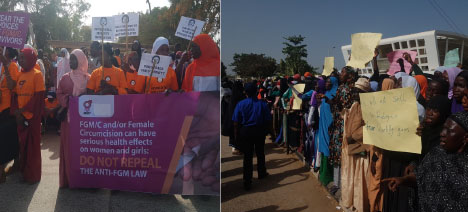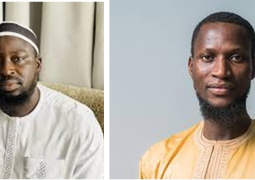
Both parties promoted different ideologies with placards of different inscriptions expressing their opinions and views.
Meanwhile, the lawmakers during the debate referred the bill to a parliamentary committee that would invite various parties including religious leaders to hear from their sides.
Speaking at the convergence, Sira Ndow, a proponent of the Anti-FGM law urged the lawmakers to uphold the law that bans the practise, claiming the practise is “harmful and against the fundamental human right of the girl child.”
“The NAMs should uphold the law. The law doesn't come out of nothing. A lot of work has been done ranging from research, sensitisation among others. We have now come to the conclusion that this practice is harmful and it is not beneficial to women at all. Even if it is not harmful, but it is not beneficial to women at all,” she said.
“Lot of girls that have undergone the practice have died. Unfortunately, there has not been record to document how many young girls and babies have died as a result of the practise over the past decades,” she claimed.
For her part, Hawa Drammeh, who supports repealing the Anti-FGM law said: “No one should be arrested for merely exercising his fundamental rights of doing the practise. If they don’t want to do the practice, let them allow others to do it, simple,” she said.
“Those who want to do the practise are the majority, thus the minority shouldn’t dictate what we do or not,” she added. “Let them even produce an evidence to show us people that people have died as a result of doing FGC. These are western ideologies that are intended to fight Islam.”
“Anything that affects Islam, we will fight for it. We are Muslims and Prophet Muhammed (S.A.W.) asked us to do it and we will continue to do the practise.”




